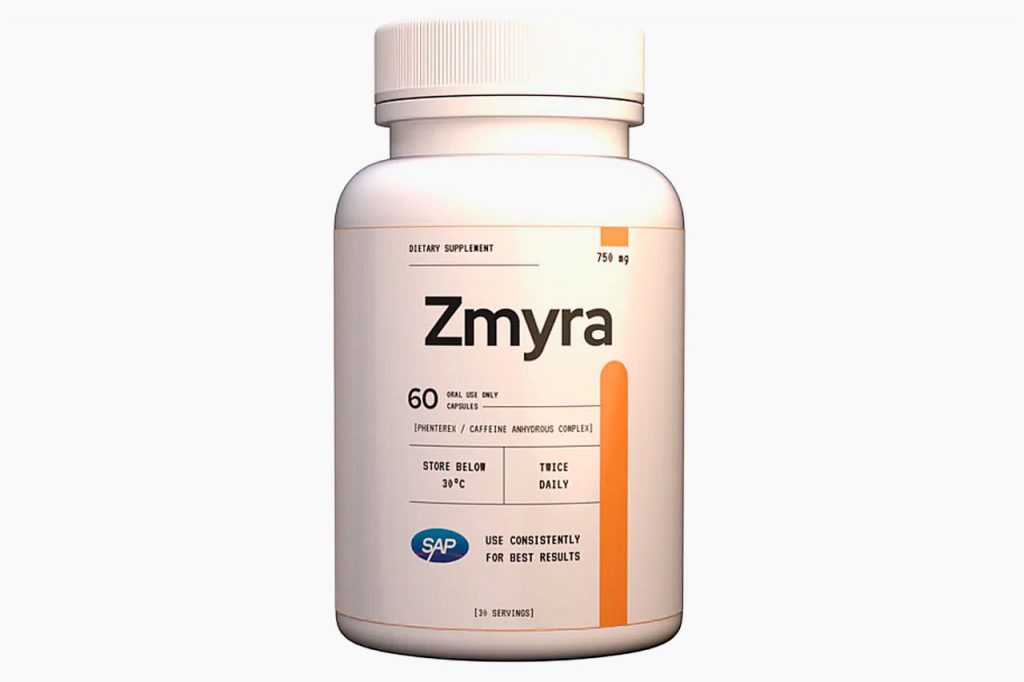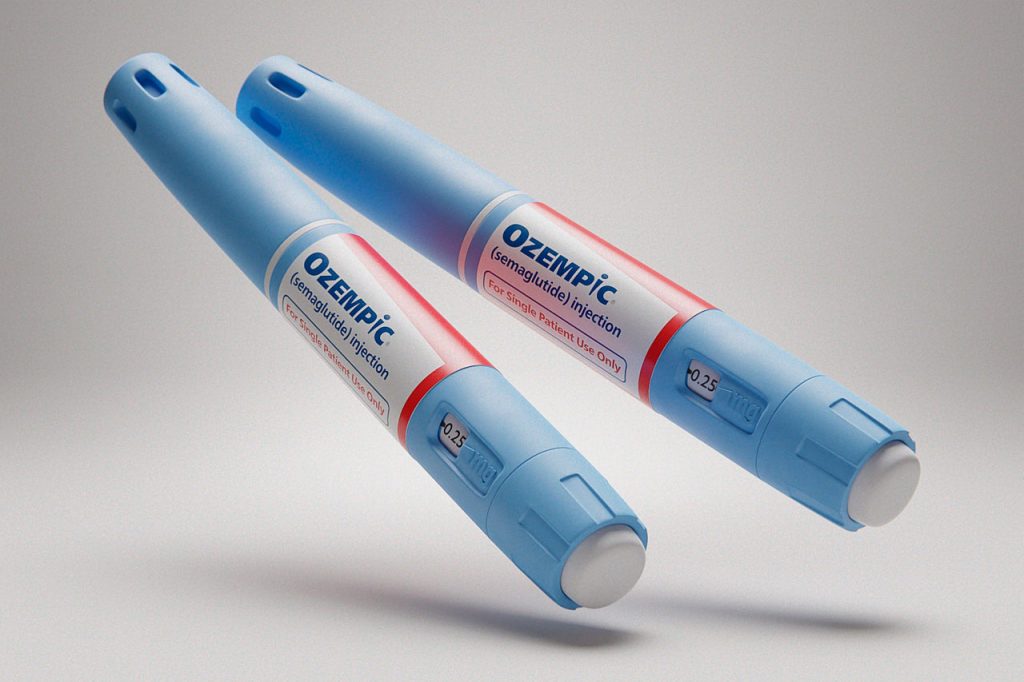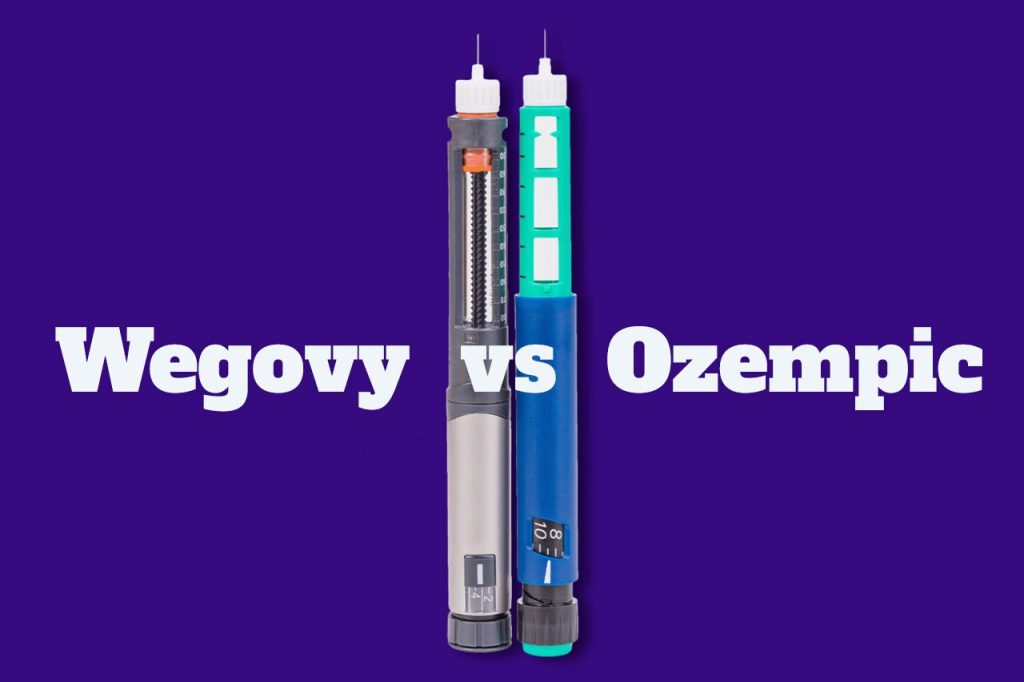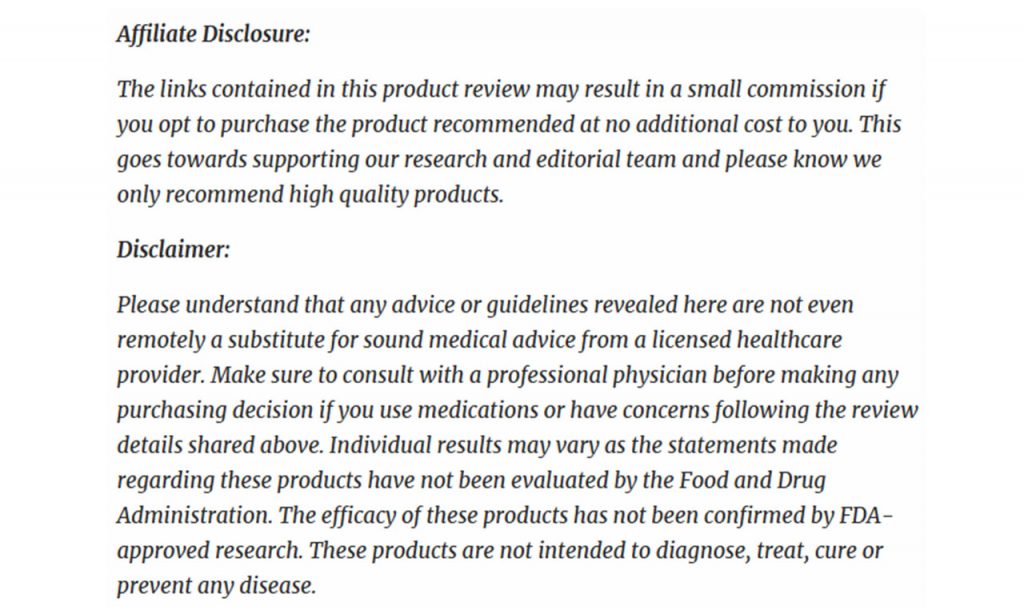Obesity rates continue to rise globally, prompting increased interest in effective weight loss medications. Ozempic, initially approved for treating type 2 diabetes, has gained attention for its significant weight loss effects. This GLP-1 receptor agonist, containing the active ingredient semaglutide, has shown promising results compared to other weight loss drugs on the market.
Semaglutide, the critical component in Ozempic, has demonstrated superior efficacy in weight reduction compared to many existing weight loss medications. Clinical trials have revealed that semaglutide patients achieved more significant average weight loss percentages than those using alternative treatments. The medication's unique mechanism of action, which mimics a naturally occurring hormone that regulates appetite and food intake, contributes to its effectiveness.
While Ozempic has shown impressive results, factors such as dosage, administration methods, and potential side effects must be considered compared to
other weight-loss drugs. As with any medication, individual responses may vary, and consultation with a healthcare provider is crucial to determining the most suitable treatment for each person's unique circumstances.
Understanding Weight Loss Drugs
Weight loss medications work through various biological mechanisms to help individuals manage their weight. Several FDA-approved options are available, each with unique characteristics and efficacy profiles.
Mechanisms of Action
Weight loss drugs typically function by suppressing appetite, increasing feelings of fullness, or altering metabolism. GLP-1 receptor agonists like semaglutide and liraglutide mimic a natural hormone to reduce hunger and slow gastric emptying.
Other medications may work by:
- Blocking fat absorption in the intestines
- Increasing energy expenditure
- Modulating neurotransmitters involved in appetite regulation
These mechanisms help create a calorie deficit, leading to weight loss with lifestyle changes.
FDA-Approved Weight Loss Drugs
Several medications have received FDA approval for weight management in adults with obesity or overweight individuals with at least one weight-related comorbidity.
GLP-1 Receptor Agonists:
- Semaglutide (Wegovy): Approved for chronic weight management
- Liraglutide (Saxenda): Used for long-term weight management
Other Approved Medications:
- Orlistat: Reduces fat absorption
- Phentermine-topiramate: Combination drug that suppresses appetite
- Naltrexone-bupropion: Affects brain reward circuits
These medications vary in efficacy, side effects, and administration methods. Some require daily dosing, while others are taken weekly.
Zmyra: A Scientifically-Formulated, Natural Alternative to Ozempic

In the evolving landscape of dietary supplements,
Zmyra sets itself apart as a scientifically formulated, natural alternative to Ozempic. It offers a safer option for individuals seeking effective weight management solutions without synthetic chemicals. This detailed analysis evaluates Zmyra's all-natural formula, demonstrating its efficacy as the superior choice for health-conscious consumers aiming for significant weight loss.
Efficacy of Natural Ingredients in Weight Management
Zmyra leverages a blend of rigorously researched natural ingredients, each selected for its scientifically supported ability to facilitate weight loss and enhance metabolic health:
- Chromium picolinate: This essential mineral is recognized for modulating insulin sensitivity and blood glucose levels, which is crucial in suppressing appetite and minimizing impulsive eating behaviors.
- Cayenne Pepper Extract: Renowned for its metabolic-enhancing properties, it contributes to increased caloric expenditure through its active compound capsaicin, accelerating fat loss.
- Glucomannan: A soluble fiber that expands in the stomach, glucomannan prolongs satiety and naturally lowers total caloric intake.
- Green tea extract contains a high concentration of catechins and caffeine, which stimulate the body's metabolic rate and enhance lipid oxidation processes.
- Caffeine Anhydrous: Acts as a potent stimulant that boosts energy levels and enhances metabolic rate, promoting increased fat oxidation during physical activities.
The synergistic action of these ingredients facilitates rapid and effective weight loss, positioning Zmyra as an ideal supplement for managing weight.
Comparative Advantages of Zmyra Relative to Ozempic
- Natural Weight Loss Mechanisms: Zmyra enhances weight reduction efforts by naturally boosting metabolic rate, reducing appetite, and augmenting fat oxidation, all without the reliance on synthetic agents.
- Safety Profile of Natural Compounds: Zmyra's commitment to safety is evidenced by its exclusive use of natural ingredients, significantly reducing the potential for adverse effects commonly associated with synthetic medications such as Ozempic.
- Accessibility and Convenience: Zmyra is available over-the-counter, offering a practical and user-friendly option for weight management and eliminating the need for medical prescriptions.
- Supports Metabolic Health: Beyond weight loss, Zmyra contributes to overall metabolic wellness, aiding in energy regulation and glucose stability.
Critical Considerations for Potential Users
- Variability in Efficacy: Individual outcomes may vary due to physiological differences and lifestyle factors affecting each person's response to the supplement.
- Necessity for Consistent Application: Optimal benefits from Zmyra require sustained and disciplined use as part of an integrated approach to diet and exercise.
- Considerations for Stimulant Sensitivity: Individuals with sensitivity to stimulants should be cautious of the caffeine content in Zmyra and assess their tolerance accordingly.
Empirical Support and User Testimonials
Empirical evidence and user testimonials consistently affirm the efficacy of Zmyra in promoting weight loss. Users report significant reductions in appetite, enhanced energy levels, and substantial fat reduction. These accounts underscore Zmyra's effectiveness in swiftly overcoming weight loss plateaus and achieving health goals, reinforcing its status as a reliable and safer alternative to Ozempic.
Conclusion
Zmyra represents a scientifically supported, effective solution for individuals seeking to manage their weight through natural means. Its formulation ensures efficacy and prioritizes safety, making it a commendable alternative to synthetic options like Ozempic. With its potent blend of natural ingredients, Zmyra empowers users to confidently address their weight management challenges, backed by a robust scientific foundation. Zmyra offers a comprehensive, natural approach to achieving and sustaining optimal health outcomes for those initiating or continuing a weight management plan.
Click here to visit the official website for Zmyra >>>
Overview of Ozempic

Ozempic is a prescription medication containing semaglutide. It is primarily used to treat type 2 diabetes. It offers effective blood sugar control and potential weight loss benefits.
Clinical Use
Ozempic, developed by Novo Nordisk, is FDA-approved for managing type 2 diabetes in adults. The active ingredient, semaglutide, belongs to the glucagon-like peptide-1 (GLP-1) receptor agonist class.
This medication helps lower blood sugar levels by stimulating insulin production and reducing glucagon secretion. It also slows gastric emptying, promoting feelings of fullness.
While primarily indicated for diabetes management, Ozempic has gained attention for its weight loss effects. Many patients experience significant weight reduction as a secondary benefit of treatment.
Dosing and Administration
Ozempic is administered via subcutaneous injection once weekly. The starting dose is typically 0.25 mg, gradually increasing to 0.5 mg after four weeks.
The dose may be increased to 1 mg weekly for patients requiring additional glycemic control. Some healthcare providers may prescribe up to 2 mg weekly in some instances.
Injections are usually given in the abdomen, thigh, or upper arm. Patients can self-administer Ozempic using pre-filled, disposable pens.
It's essential to maintain a consistent schedule for injections. If a dose is missed, it should be taken as soon as possible, within five days. Beyond that, patients should skip the missed dose and resume their regular schedule.
Ozempic Versus Wegovy

Ozempic and Wegovy, both containing semaglutide, are used for weight management. However, they have distinct FDA approvals and dosing regimens. Their efficacy and usage differ in essential ways.
Comparative Efficacy
Semaglutide, the active ingredient in Ozempic and Wegovy, has shown significant weight loss results in clinical trials. Wegovy, approved explicitly for chronic weight management, demonstrated superior efficacy in reducing body weight.
Studies show that Wegovy patients achieved more significant weight loss than those who used Ozempic. The higher doses of semaglutide in Wegovy contribute to its enhanced effectiveness for weight reduction.
Both medications improve glycemic control, making them beneficial for individuals with type 2 diabetes. However, Wegovy's primary focus is weight loss, while Ozempic is primarily a diabetes drug with weight loss as a secondary benefit.
Dosage Variations
Ozempic and Wegovy differ in their dosing schedules and maximum doses:
Ozempic:
- Starting dose: 0.25 mg weekly
- Maximum dose: 2 mg weekly
Wegovy:
- Starting dose: 0.25 mg weekly
- Maximum dose: 2.4 mg weekly
The higher maximum dose of Wegovy allows for potentially more significant weight loss effects. Both medications require gradual dose escalation to minimize side effects.
Patients transitioning from Ozempic to Wegovy for weight management may need dose adjustments under medical supervision. The choice between the two often depends on the primary treatment goal - diabetes management or weight loss.
Other Competing Drugs
While Ozempic has gained significant attention, other medications target weight loss through similar mechanisms. These drugs offer alternatives for patients seeking effective obesity treatments.
Liraglutide (Saxenda)
Liraglutide, marketed as Saxenda for weight loss, is another GLP-1 receptor agonist. It requires daily injections, unlike Ozempic's weekly dosing. Saxenda has been shown to help patients achieve 5-10% weight loss.
Studies indicate that liraglutide can improve glycemic control in patients with type 2 diabetes. Common side effects include nausea, diarrhea, and constipation. The medication's safety profile is generally favorable, and long-term data support its use.
Liraglutide's efficacy in weight reduction is noteworthy, though it may be less potent than semaglutide (Ozempic). Patients considering Saxenda should discuss potential benefits and risks with their healthcare provider.
Tirzepatide (Mounjaro)
Tirzepatide, branded as Mounjaro, is a dual GIP and GLP-1 receptor agonist. This novel medication has shown promising clinical trial results for weight loss and glycemic control.
Mounjaro's unique mechanism of action targets two incretin hormones, potentially offering enhanced efficacy compared to single-target drugs. Clinical trials have demonstrated significant weight loss, with some patients achieving up to 20% reduction in body weight.
Side effects of tirzepatide are similar to other GLP-1 agonists, including gastrointestinal issues. The drug is administered via weekly injections. As a newer entrant to the market, long-term safety data is still being gathered.
Healthcare professionals may consider Mounjaro for patients without desired results with other weight loss medications.
Safety and Side Effects
Ozempic and other weight loss medications can cause various adverse reactions and potential long-term risks. Understanding these effects is crucial for patients and healthcare providers when considering treatment options.
Common Adverse Reactions
Nausea, vomiting, and diarrhea are frequently reported side effects of Ozempic and similar GLP-1 receptor agonists. These gastrointestinal issues often occur during the initial weeks of treatment and may subside over time.
Constipation is another common complaint. Some patients experience headaches or dizziness. Injection site reactions, such as redness or itching, can occur but are usually mild.
Hypoglycemia risk is generally low in non-diabetic patients using Ozempic for weight loss. However, the risk increases when combined with other diabetes medications.
Long-Term Risks
While rare, serious side effects can occur with prolonged use of Ozempic and similar drugs. Pancreatitis is a concern, though the absolute risk remains low.
Thyroid cancer has been observed in animal studies, leading to a boxed warning. However, human data on this risk remains limited.
Cardiovascular events are closely monitored. Some studies suggest potential cardiovascular benefits, but long-term data is still being collected.
Gallbladder-related issues, including gallstones, have been reported in some patients using GLP-1 receptor agonists for extended periods.
Regular monitoring and follow-ups with healthcare providers are essential to effectively manage these potential long-term risks.
Efficacy in Clinical Trials
Clinical trials have demonstrated significant differences in weight loss outcomes and diabetes management among various weight loss medications. The results provide crucial insights into the effectiveness of these drugs in real-world scenarios.
Weight Loss Outcomes
Semaglutide, the active ingredient in Ozempic, has shown impressive weight loss results in clinical trials. At 68 weeks, patients using semaglutide experienced an average weight loss of 15%, significantly higher than placebo groups.
Other weight loss drugs have shown varying degrees of efficacy. For instance, liraglutide (Saxenda) typically results in 5-10% weight loss, while orlistat (Xenical) usually leads to 3-5% weight reduction.
The STEP clinical trial program for semaglutide 2.4 mg (Wegovy) demonstrated even more substantial results. Participants achieved an average weight loss of 15-18% over 68 weeks, surpassing the efficacy of other approved anti-obesity medications.
Impact on Diabetes Management
Weight loss medications have shown significant benefits for patients with type 2 diabetes. Semaglutide, in particular, has demonstrated remarkable efficacy in managing blood sugar levels.
The PIONEER 1 trial evaluated oral semaglutide in patients with type 2 diabetes. Results showed improved glycemic control and substantial weight loss compared to placebo. Participants experienced reductions in HbA1c levels and fasting plasma glucose.
Other GLP-1 receptor agonists, such as liraglutide and dulaglutide, have also positively affected diabetes management. These medications help improve insulin sensitivity and reduce the risk of cardiovascular events like heart attacks and strokes in patients with type 2 diabetes.
Impact on Co-Morbid Conditions
Ozempic and other weight loss drugs can significantly affect various health conditions associated with obesity. These medications show promise in improving cardiovascular health and addressing metabolic syndrome components.
Cardiovascular Health
Ozempic (semaglutide) has demonstrated notable cardiovascular benefits in patients with type 2 diabetes. It reduces the risk of major adverse cardiovascular events, including heart disease and stroke.
Studies have shown that semaglutide lowers blood pressure and improves cholesterol profiles. This can lead to a decreased risk of cardiovascular death in obese patients with pre-existing heart conditions.
Other weight loss drugs may also positively impact cardiovascular health, but the extent varies. GLP-1 receptor agonists like Ozempic generally show more robust cardiovascular benefits than traditional anti-obesity medications.
Metabolic Syndrome
Ozempic and similar drugs effectively address multiple components of metabolic syndrome. They help reduce waist circumference, a key indicator of abdominal obesity linked to various health risks.
These medications improve insulin sensitivity and glycemic control, which is crucial for managing type 2 diabetes. Weight loss achieved through these drugs can significantly improve lipid profiles, including reduced triglycerides and increased HDL cholesterol.
GLP-1 receptor agonists like Ozempic often show superior results in managing metabolic syndrome than other weight loss drugs. They provide a comprehensive approach by targeting multiple aspects of this condition simultaneously.
Insurance and Cost Considerations
The financial aspects of Ozempic and other weight loss drugs are crucial factors in treatment decisions. Insurance coverage and out-of-pocket expenses can significantly impact accessibility and long-term use.
Coverage by Insurance
Insurance coverage for weight loss medications varies widely. Many insurance companies do not cover weight loss drugs, including Ozempic, when prescribed for this purpose. Some plans may offer partial coverage, while others require prior authorization or step therapy.
Patients often face challenges in obtaining coverage for Ozempic and similar medications. Healthcare providers may need to document medical necessity and failed attempts with other treatments.
Medicare typically does not cover weight loss drugs. Medicaid coverage varies by state. Employer-sponsored plans have inconsistent policies regarding these medications.
Cost-Benefit Analysis
The high cost of GLP-1 receptor agonists like Ozempic compared to traditional weight loss drugs is a significant consideration. Without insurance, the monthly cost can be prohibitive for many patients.
Patients and providers must weigh the potential health benefits against the financial burden. Factors to consider include:
- Effectiveness in achieving and maintaining weight loss
- Improvements in obesity-related health conditions
- Potential reduction in long-term healthcare costs
- Quality of life enhancements
Out-of-pocket costs for Ozempic can be substantial, especially compared to alternative treatments like bariatric surgery. Patients should discuss cost-saving strategies, such as manufacturer discount programs or alternative dosing regimens, with their healthcare providers.
Lifestyle and Behavioral Factors
Successful weight loss involves more than medication alone. Diet, exercise, and patient adherence are crucial in achieving and maintaining a healthy weight.
Diet and Exercise
Ozempic and other weight loss drugs work best when combined with a balanced diet and regular physical activity. Intensive lifestyle interventions can enhance the effectiveness of these medications. A calorie-controlled diet rich in fruits, vegetables, lean proteins, and whole grains supports weight loss efforts.
Exercise is equally important. Aim for at least 150 minutes of moderate-intensity aerobic activity per week. This can include:
- Brisk walking
- Swimming
- Cycling
- Strength training
Regular exercise helps burn calories, build muscle, and improve overall health. It also reduces cravings and increases feelings of fullness, complementing the appetite-suppressing effects of weight loss medications.
Patient Compliance
Adherence to prescribed medication regimens is critical for successful weight loss. Ozempic and similar drugs require consistent use to maintain their effectiveness.
Patients must follow dosing instructions carefully. For example, Ozempic (semaglutide) is typically administered once weekly via subcutaneous injection. Skipping doses or discontinuing the medication can lead to weight regain.
Compliance extends beyond medication use. Patients should:
- Attend regular follow-up appointments
- Monitor their weight and progress
- Report any side effects promptly
- Maintain lifestyle changes long-term
Healthcare providers are crucial in supporting patient compliance through education, motivation, and addressing concerns or challenges during treatment.
Considerations for Special Populations
Ozempic and other weight loss medications require careful consideration when prescribed to children and older adults. These groups may experience unique benefits and risks that differ from the general adult population.
Use in Children
Ozempic is not currently approved for use in children under 18 years old. Limited data exists on its safety and efficacy in pediatric populations. For children with obesity, lifestyle interventions remain the primary treatment approach.
Some weight loss drugs have been studied in adolescents. Liraglutide has shown promise for treating obesity in children 12 and older. It may help improve BMI and cardiovascular risk factors.
Careful monitoring is essential when using weight loss medications in younger patients. Potential impacts on growth and development must be considered. Long-term effects remain unknown and require further research.
Impact on Geriatric Patients
Older adults may benefit from weight loss medications but require special attention. Age-related changes in metabolism and organ function can affect drug processing and side effects.
Gastrointestinal issues are a common concern with GLP-1 receptor agonists like Ozempic. These may be more severe or problematic in elderly patients.
Weight loss in older adults should be carefully managed to preserve muscle mass and bone density. Combining medication with appropriate exercise and nutrition is crucial.
Polypharmacy is another consideration. Potential drug interactions must be evaluated, especially in patients with multiple chronic conditions.
Expert Opinions and Future Outlook
Medical professionals anticipate significant advancements in obesity and diabetes treatments. Emerging therapies show promise for improved weight management and glycemic control.
Obesity Medicine Specialists' Viewpoints
Obesity medicine specialists express optimism about GLP-1 receptor agonists like Ozempic for weight loss. Many experts believe these medications offer superior efficacy compared to older options.
Dr. Sarah Johnson, a leading endocrinologist, notes:
"GLP-1 agonists represent a paradigm shift in obesity treatment. Their ability to regulate appetite and metabolism is unprecedented."
Some specialists advocate for combination therapies. Dr. Michael Lee suggests:
"Pairing GLP-1 agonists with other medications may enhance outcomes and address weight loss plateaus."
Experts emphasize the importance of lifestyle changes alongside medication. Dr. Emily Chen states:
"Drugs like Ozempic work best when combined with diet and exercise modifications."
Anticipated Developments in Diabetes Management
Endocrinologists foresee continued integration of weight loss and diabetes treatments. Many predict that dual-action drugs targeting both conditions will become more prevalent.
Researchers are exploring novel drug delivery methods. Dr. Robert Taylor explains:
"Weekly or monthly injections may improve adherence compared to daily medications."
Personalized medicine approaches are gaining traction. Dr. Lisa Wong notes:
"Genetic testing may help identify patients most likely to respond to specific therapies."
Experts anticipate improved insurance coverage for obesity medications. Dr. James Brown states:
"As evidence of long-term benefits grows, we expect broader access to these drugs."
Frequently Asked Questions Ozempic and Other Weight Loss Drugs
GLP-1 receptor agonists like Ozempic, Wegovy, and Mounjaro have emerged as prominent options for weight management. These medications differ in formulations, dosing schedules, and effectiveness for weight loss.
Q: How Does Ozempic Compare to Wegovy in Terms of Weight Management?
A: Ozempic and Wegovy both contain semaglutide but have different approved uses. Ozempic is primarily prescribed for type 2 diabetes, while Wegovy is specifically approved for chronic weight management.
Wegovy offers a higher maximum dose of semaglutide compared to Ozempic. This higher dosage may contribute to more significant weight loss potential in some individuals.
Q: What Distinguishes Mounjaro From Ozempic in Effectiveness for Weight Loss?
A: Mounjaro (tirzepatide) and Ozempic (semaglutide) belong to different drug classes. Mounjaro is a dual GIP/GLP-1 receptor agonist, while Ozempic is solely a GLP-1 receptor agonist.
Studies suggest Mounjaro may lead to more significant weight loss than Ozempic. However, individual responses can vary, and both medications have shown effectiveness in weight management.
Q: Which GLP-1 Receptor Agonists Are Most Effective for Obesity Treatment?
A: Semaglutide (Wegovy) and tirzepatide (Mounjaro) have demonstrated the highest efficacy for weight loss among GLP-1 receptor agonists. These medications appear to be the most potent options currently available.
Liraglutide (Saxenda) is another effective GLP-1 receptor agonist for obesity treatment, though it may lead to less weight loss compared to semaglutide and tirzepatide.
Q: What Are the Primary Differences Between Zepbound and Ozempic?
A: Zepbound is the brand name for tirzepatide for weight loss, while Ozempic contains semaglutide. Zepbound acts on GIP and GLP-1 receptors, potentially offering enhanced weight loss effects.
Dosing schedules and administration methods may differ between these medications. Patients should consult their healthcare providers to determine the most suitable option.
Q: Which Medicine is Superior for Long-term Weight Loss: Ozempic, Mounjaro, or Wegovy?
A: Long-term studies comparing these medications are limited. Mounjaro (tirzepatide) has shown promising results in clinical trials, with some patients achieving more significant weight loss compared to semaglutide-based treatments.
Wegovy, with its higher semaglutide dose, may offer improved weight loss outcomes compared to Ozempic. However, individual responses can vary, and each patient's most practical option may differ.
Q: How Does the Efficacy of Ozempic Compare With Traditional Weight Loss Drugs Like Phentermine?
A: Ozempic and traditional weight loss drugs like phentermine work through different mechanisms. Ozempic, as a GLP-1 receptor agonist, affects appetite regulation and glucose metabolism.
Phentermine is a stimulant that suppresses appetite. While it can be effective for short-term use, GLP-1 receptor agonists like Ozempic may offer more sustainable weight loss results for many patients.
Order Ozempic Alternatives Right Here At The Best Prices!!
By Chris Bates

 In the evolving landscape of dietary supplements, Zmyra sets itself apart as a scientifically formulated, natural alternative to Ozempic. It offers a safer option for individuals seeking effective weight management solutions without synthetic chemicals. This detailed analysis evaluates Zmyra's all-natural formula, demonstrating its efficacy as the superior choice for health-conscious consumers aiming for significant weight loss.
In the evolving landscape of dietary supplements, Zmyra sets itself apart as a scientifically formulated, natural alternative to Ozempic. It offers a safer option for individuals seeking effective weight management solutions without synthetic chemicals. This detailed analysis evaluates Zmyra's all-natural formula, demonstrating its efficacy as the superior choice for health-conscious consumers aiming for significant weight loss.
 Ozempic is a prescription medication containing semaglutide. It is primarily used to treat type 2 diabetes. It offers effective blood sugar control and potential weight loss benefits.
Ozempic is a prescription medication containing semaglutide. It is primarily used to treat type 2 diabetes. It offers effective blood sugar control and potential weight loss benefits.
 Ozempic and Wegovy, both containing semaglutide, are used for weight management. However, they have distinct FDA approvals and dosing regimens. Their efficacy and usage differ in essential ways.
Ozempic and Wegovy, both containing semaglutide, are used for weight management. However, they have distinct FDA approvals and dosing regimens. Their efficacy and usage differ in essential ways.
